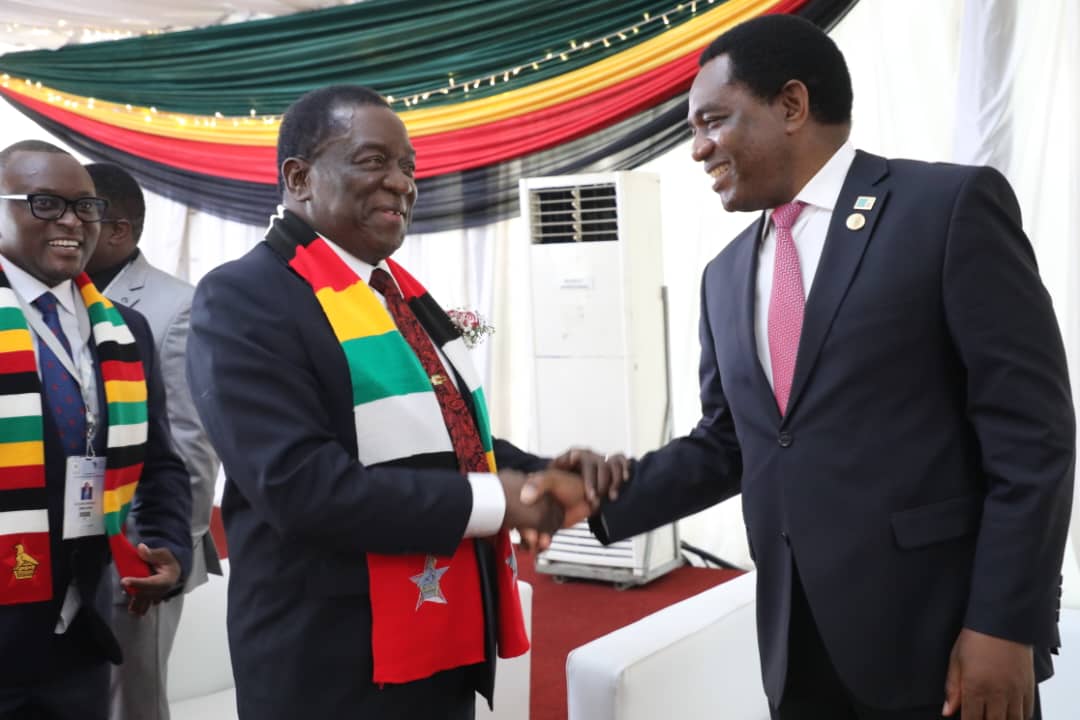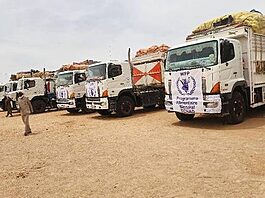
By Twink Jones Gadama
HARARE-(MaraviPost)-The recent diplomatic fallout between Zambia and Zimbabwe has raised concerns among regional observers, with many wondering what’s behind the sudden strain in relations between the two neighboring countries.
At the heart of the matter is a war of words sparked by Zimbabwean President Emmerson Mnangagwa's comments during a visit to Russia, which Zambia has deemed an "unwarranted attack on its sovereignty."
Mnangagwa’s remarks, made in the presence of Russian President Vladimir Putin, accused the United States of militarizing Zambia in a bid to consolidate power in the region and isolate Zimbabwe.
The comments have been rejected by Zambia’s Foreign Minister Mulambo Haimbe, who insists that his country is committed to maintaining cordial relations with both Zimbabwe and the United States.
The current tensions are not without historical context.
Relations between Zambia and Zimbabwe have been strained in the past, particularly in 2008 when Zimbabwe’s state-owned media launched a smear campaign against the Zambian government, accusing it of being a puppet of the British.
The situation was further exacerbated by Zimbabwe’s controversial presidential election that same year, which saw then-President Robert Mugabe’s regime accused of widespread human rights abuses.
Fast-forward to the present, and it appears that old wounds have been reopened.
Mnangagwa’s comments have been perceived by Zambia as a veiled attack on its sovereignty, prompting a strong response from Lusaka.
The Zambian government has called on the African Union and the Southern African Development Community to mediate talks with Zimbabwe, a move that suggests a deepening of the diplomatic rift.
But what’s really driving the tensions between these two southern African nations?
According to international relations expert Dr. Alexander Rusero, Zambia’s reaction is largely driven by a sense of displeasure and retaliation.
“Zimbabwe has every reason to worry about the militarization of Zambia, given the frosty relations between Zimbabwe and the United States,” he notes. “Every neighbor should be worried when such developments happen.”
Zambia, however, maintains that its military exchange programs with the United States are routine and should not be misconstrued as a U.S. military base in the country.
President Hakainde Hichilema has personally denied the allegations, but the damage seems to have been done.

The situation is further complicated by the historical context of the two nations.
Both Zambia and Zimbabwe share a common history, having been part of the Federation of Rhodesia and Nyasaland from 1953 to 1963.
They also share membership in the Southern African Development Community and the African Union, which makes the current tensions all the more surprising.
Despite the diplomatic fallout, Zimbabwe’s Information Minister Jenfan Muswere has downplayed the situation, insisting that his country remains committed to maintaining good relations with Zambia.
“We are a friend to all and an enemy to none,” he said in a recent statement.
The strain in relations between Zambia and Zimbabwe has implications that go beyond the two nations.
The situation has the potential to destabilize the region, particularly if other countries are drawn into the conflict.
It also raises questions about the ability of regional bodies like the African Union and the Southern African Development Community to mediate conflicts and maintain peace and stability in the region.
As the situation continues to unfold, one thing is clear: the diplomatic tensions between Zambia and Zimbabwe are a reminder that even the closest of neighbors can have vastly different interests and priorities.
It’s a situation that will require careful diplomacy and a commitment to dialogue if the two nations are to repair their strained relations and maintain peace in the region.






